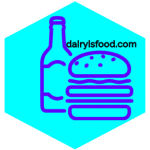People choose to avoid certain foods for ethical, moral, or general health reasons, such as vegetarians and vegans. Others steer clear of ingredients that aggravate a medical condition such as celiac disease, gluten sensitivity, or lactose intolerance. If you eliminate whole categories of foods from your life, you may need to be extra-vigilant about ensuring that you get
all the nutrients you need.
Vegetarian and Vegan
Technically, a vegetarian is defined as a person who does not eat meat, fish, or fowl or products that contain them. However, in reality, the eating patterns of vegetarians can vary considerably. Vegans consume no meat, poultry, fish, dairy, or eggs, and may also exclude honey. Lacto-ovo-vegetarians include milk and products made from milk, as well as eggs, but avoid meat, fish, and poultry in their diets. Lacto-vegetarians consume milk and products made from milk. And some vegetarians may even include occasional fish, chicken, and meat.
Dairy Free
Your body requires an enzyme—lactase—to break down sugar in dairy foods called lactose. Some people don’t make enough lactase in their digestive system to handle a lot of dairy. A cup of milk or bowl of ice cream may cause belly pain and bloating gas, and diarrhoea for lactose-intolerant people.
Diet advise for Vegetarian and Vegan
Plant-based diets have been associated with lower rates of obesity, heart disease, high blood pressure, type 2 diabetes, and cancer. Along with the health benefits, though, are some concerns. Vegetarians, especially vegans, need to make up for the lack of animal sources of several important nutrients. Here are dietary considerations for vegans:
- Protein. Vegans can meet their protein needs by combining complementary plant protein sources to make complete proteins.
- Calories. Because plant-based diets are high in fibre and lower in calorie-dense foods, care needs to be taken to make sure there is adequate energy in the diet, especially for children. Foods with higher caloric density, such as nuts and dried fruits, should be included often in meals and snacks.
- Vitamin B12. Because plant foods don’t contain B12, vegans need to include a reliable source in their diet daily, such as nutritionally enriched yeast, or a B12 supplement.
- Vitamin D. Your two best sources of vitamin D are sun exposure and foods fortified with vitamin D, such as cow’s milk and fortified soy and rice beverages. If you don’t get enough sun exposure and fortified foods, then vitamin D supplements are recommended.
- Minerals. Iron, calcium, zinc, and some other minerals are not as readily available from plant sources, so vegans need to develop strategies to make sure they’re getting adequate amounts such as eating iron-enriched cereals, including sources of vitamin C at meals to help the absorption of iron from plant foods and eating dark green vegetables, tofu, legumes, almonds, and sesame seeds to ensure adequate calcium intake.
Diet advise for Dairy Free
Here’s how to approach dairy differently without running short of important nutrients, especially calcium and vitamin D.
- Seek speciality brands. Buy brands of milk that are low in lactose or even lactose-free.
- Add supplements. Take a lactase supplement before you consume milk or other dairy foods.
- Experiment. You may be able to comfortably handle small amounts of dairy food at a time, especially if you have them with other foods. And some types of foods—like hard cheese and yoghurt—may be easier to digest than others.
- Boost calcium intake. Eat other foods containing calcium, such as salmon and sardines with the bones, dark green leafy vegetables, and fortified soymilk. You can get vitamin D by exposing your skin to sunlight for brief periods or by taking a supplement
Vegan Kids diet requirements
Children have high nutrient requirements, but they have small stomachs, so careful planning is needed to make sure a vegan diet can support a growing child’s needs. The daily diet should include three meals plus plenty of appealing snacks muffins, and whole-grain cookies; sources of fat, such as nuts, seeds, and avocados; and plenty of protein-rich foods like tofu, nut butter, and soy cheese.
The bottom line
- • If you are vegetarian or vegan, make sure you get enough protein, vitamin B12, vitamin D, and minerals such as iron, calcium, and zinc.
- • If you are dairy-free, look for other sources of calcium and vitamin D, such as dark green leafy vegetables and soy.

